Pomegranate Juice Interaction Checker
Check Your Medication Interactions
This tool helps you understand if your medications interact with pomegranate juice based on clinical evidence. Note: Pomegranate juice has been shown to have minimal to no interactions with most medications.
Many people hear that grapefruit juice can mess with their medications and immediately start worrying about other fruity drinks - especially pomegranate juice. It’s red, it’s trendy, it’s packed with antioxidants, and it’s often marketed as a superfood. But if you’re on blood pressure meds, cholesterol drugs, or blood thinners, you might be asking: pomegranate juice and medications - is this another grapefruit situation?
The short answer? No. Not even close.
For over a decade, scientists have been trying to figure out if pomegranate juice behaves like grapefruit juice when it comes to drug interactions. The early lab studies said yes. The real-world human data says no. And here’s what actually matters: if you’re drinking pomegranate juice, you don’t need to stop - unless your doctor tells you otherwise for a completely different reason.
Why Everyone Got Worried in the First Place
Back in 2005, a lab study from Japan made headlines. Researchers found that when they mixed pomegranate juice with human liver enzymes, it blocked a key enzyme called CYP3A4 - the same enzyme grapefruit juice shuts down. That enzyme is responsible for breaking down about half of all prescription drugs, including statins, blood pressure pills, and some antidepressants. The results looked scary: pomegranate juice appeared to inhibit CYP3A4 just as strongly as grapefruit juice.
It made sense to panic. Grapefruit juice is infamous. It can cause dangerous spikes in drug levels. One glass can raise the concentration of felodipine - a blood pressure medication - by more than 350%. That’s not a minor tweak. That’s a risk of fainting, kidney damage, or even heart rhythm problems.
So when pomegranate juice showed similar effects in a test tube, pharmacies started updating their warning lists. Doctors began asking patients to avoid it. Patients started swapping pomegranate for orange juice, thinking they were being safe.
But Then Real People Started Drinking It
Laboratory results don’t always translate to real life. That’s the big lesson here.
Between 2007 and 2013, multiple clinical trials tested pomegranate juice in actual humans - not in petri dishes, but in people taking real medications. The results were clear: pomegranate juice didn’t change drug levels at all.
In one study, people took flurbiprofen - a painkiller processed by CYP2C9 - and drank 250 ml of pomegranate juice daily for a week. Their drug levels stayed exactly the same. In another, people on midazolam - a sedative that’s a classic test drug for CYP3A4 - drank pomegranate juice for several days. Their blood levels didn’t budge. The average change in drug exposure? Less than 2%. That’s nothing.
Compare that to grapefruit juice. One glass can double or triple drug levels. Pomegranate juice? No effect. Zero. Nada.
Why the difference? It comes down to concentration. Grapefruit juice contains compounds called furanocoumarins that survive digestion and stick around in the gut, where they permanently disable CYP3A4 enzymes. Pomegranate juice has different compounds - punicalagins and ellagic acid - that get broken down or absorbed before they ever reach those enzymes in significant amounts. What works in a test tube doesn’t survive the journey through your stomach and intestines.
What About Warfarin? I Heard It Can Affect Blood Thinners
Warfarin (Coumadin) is metabolized by CYP2C9, and grapefruit juice doesn’t touch it - but pomegranate juice was suspected. A few case reports popped up. One in 2017 mentioned a patient whose INR (a measure of blood thinning) jumped after starting pomegranate extract. That sounds alarming.
But here’s the catch: that patient took a concentrated extract, not juice. Extracts are different. They’re like taking a whole fruit and squeezing it down into a capsule. You’re getting way more of the active compounds than you ever would from a glass of juice.
Meanwhile, multiple studies and patient reports show no effect from actual juice. One Reddit thread from 2022 had 47 pharmacists weighing in. 42 of them said they never warn patients about pomegranate juice. One pharmacist with 12 years of experience said: “I’ve had several cases where grapefruit juice spiked INR with warfarin. I’ve never seen it with pomegranate juice.”
A patient on Drugs.com reported drinking a cup of pomegranate juice every day for six months while on warfarin. Their INR stayed perfectly stable between 2.0 and 2.5. That’s not luck. That’s evidence.
So Why Do Some Doctors Still Say to Avoid It?
Because the old information hasn’t caught up.
A 2016 survey found that 68% of physicians still believed pomegranate juice needed the same warnings as grapefruit juice. That’s not because they’re careless - it’s because the science changed faster than medical education did.
Many clinics still have outdated handouts. Pharmacists sometimes default to caution. Patients hear “fruit juice can interfere with meds” and assume all red juices are the same.
The American Society for Clinical Pharmacology and Therapeutics issued a clear statement in 2015: “Pomegranate juice does not require avoidance with CYP3A4 or CYP2C9 substrate drugs based on current clinical evidence.”
And yet, confusion lingers.
Pomegranate Extract Is a Different Story
Here’s where things get tricky.
Pomegranate juice - the kind you pour from a carton - is safe. But pomegranate extract? That’s a supplement. Capsules, powders, tinctures. These aren’t regulated like food. They’re concentrated. One capsule might equal the juice of five pomegranates.
There’s no solid data yet on whether these extracts interact with drugs. A 2022 review in Clinical Pharmacokinetics flagged them as “warranting further investigation.”
If you’re taking a pomegranate supplement - especially if you’re on blood thinners, statins, or blood pressure meds - talk to your doctor. Don’t assume it’s safe just because the juice is.
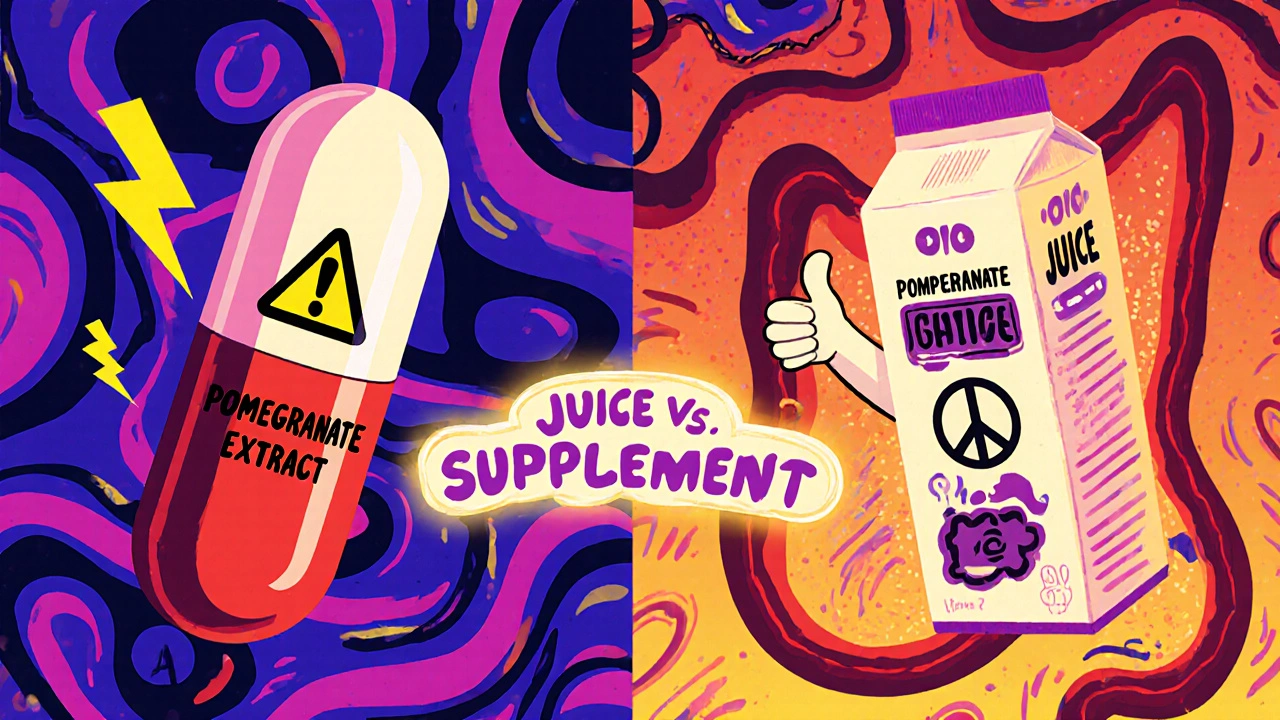
What About Other Fruit Juices?
Only grapefruit and its close relatives - like Seville oranges and pomelos - are proven to cause dangerous interactions. Orange juice? Apple juice? Cranberry? Pineapple? None of them have shown consistent, clinically meaningful effects on CYP enzymes.
Cranberry juice was once suspected of interacting with warfarin. Multiple studies since 2010 have shown no effect. Same with apple juice. It’s a myth.
So if you’re trying to avoid drug interactions, focus on one thing: grapefruit. Everything else? You’re fine.
What Should You Actually Do?
Here’s a simple, practical guide:
- If you’re on a medication that interacts with grapefruit juice - stop drinking grapefruit juice. Period.
- If you drink pomegranate juice - keep drinking it. No changes needed.
- If you take pomegranate supplements - talk to your doctor or pharmacist. Don’t assume safety.
- Don’t confuse juice with extract. They’re not the same.
- If you’re unsure about any food or supplement, check the Drug Interaction Database from the University of Washington. They rate pomegranate juice as “B” - meaning moderate evidence it does NOT interact.
And if your doctor tells you to avoid pomegranate juice? Ask why. Show them the 2012 and 2013 clinical studies. Ask if they’ve seen a single case where it caused a problem. Chances are, they haven’t.
The Bigger Lesson
This isn’t just about pomegranate juice. It’s about how medicine works - and how often it gets things wrong.
We rely on lab studies because they’re fast and cheap. But they don’t tell the whole story. Real people, real digestion, real biology - that’s what matters. The fact that pomegranate juice passed the real-world test while grapefruit juice didn’t is a reminder: don’t panic over test tubes. Trust human data.
For patients, this means less fear. Less unnecessary dietary restriction. More freedom to enjoy a healthy drink without guilt.
For doctors and pharmacists, it means updating your knowledge. This isn’t a niche topic. It’s a common point of confusion. And correcting it can save patients stress, confusion, and even unnecessary changes to their medication.
So go ahead. Pour yourself a glass. Enjoy the tart, sweet taste. Your meds won’t care.

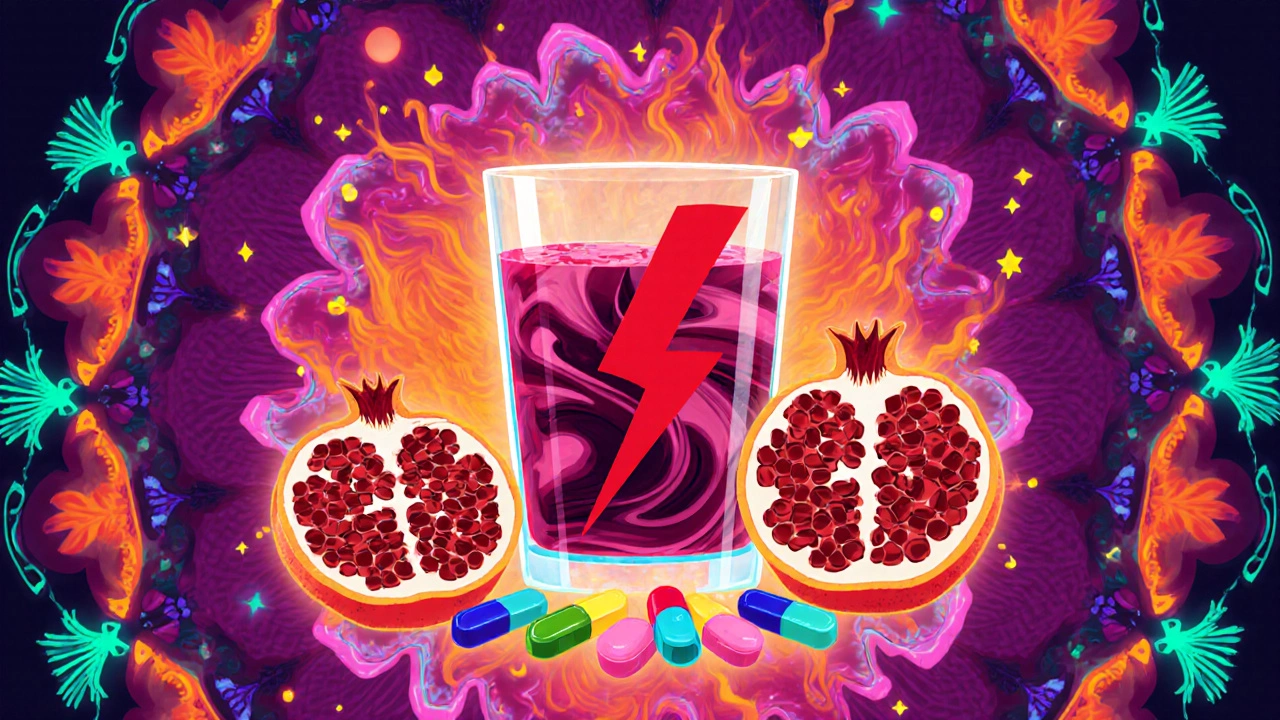
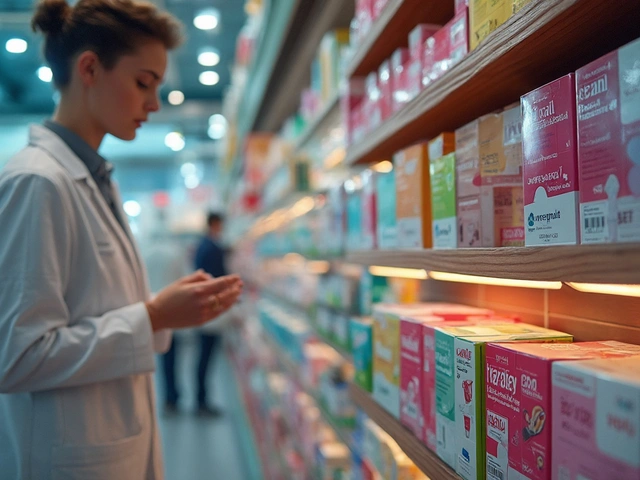

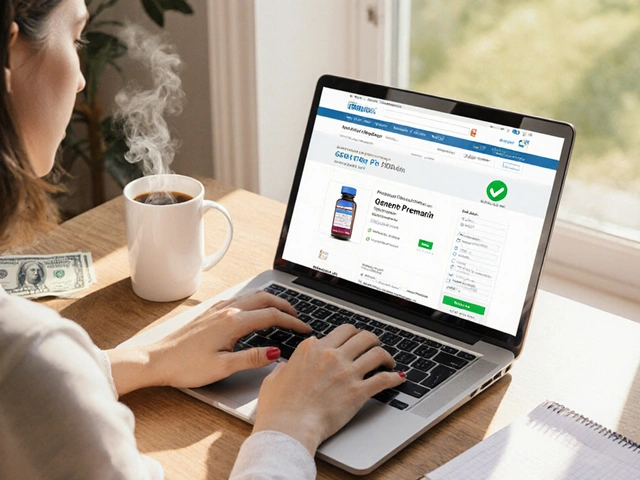
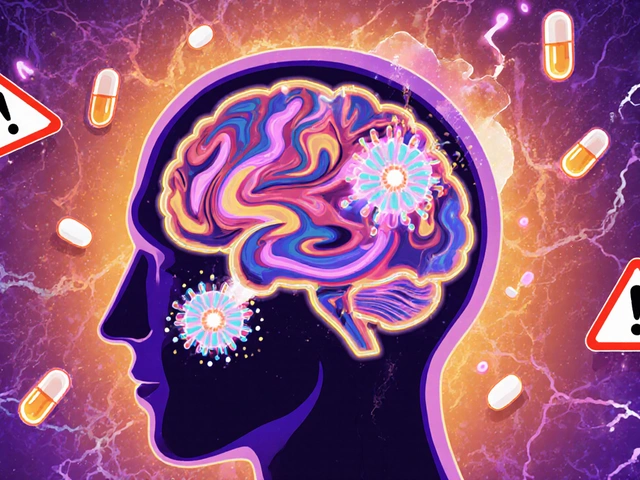
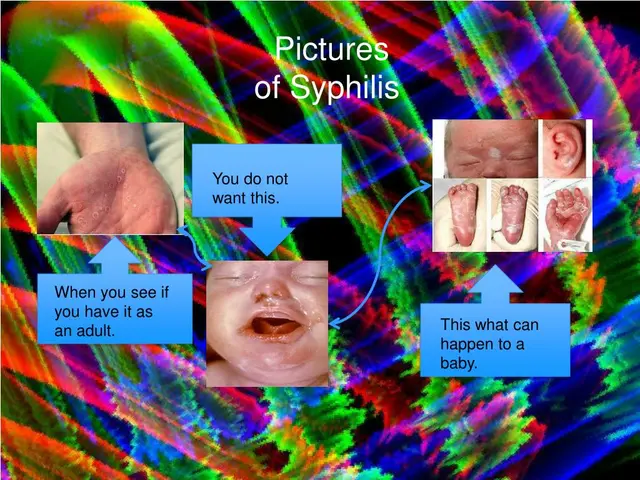
shubham seth
November 17, 2025 AT 00:41Pomegranate juice is the ultimate middle finger to pharmaceutical fear-mongering. Lab rats saw inhibition, real humans drank it and didn’t keel over. The fact that doctors still warn people like it’s grapefruit is criminal negligence. I’ve been chugging it with my statins for 5 years. My liver’s still dancing. Let the outdated guidelines rot.
Kathryn Ware
November 17, 2025 AT 14:07OMG YES THIS IS SO IMPORTANT 😭 I’ve been telling my patients this for years! Pomegranate juice is literally just a delicious antioxidant bomb 🍒✨ The lab studies? Cute. But human trials? 100% clean. I had a 72-year-old on warfarin who drank it daily for 3 years - INR stayed at 2.3. No drama. No panic. Just joy. Please stop scaring people over test tubes. Real life > petri dishes. 🙏
kora ortiz
November 19, 2025 AT 11:52Stop overcomplicating this. The science is clear. Pomegranate juice does not interact with medications. Period. If your doctor says otherwise, ask for the evidence. If they can’t produce a single clinical trial showing harm, they’re just repeating outdated noise. Drink your juice. Live your life. Don’t let fear dictate your diet. You’re not a lab rat.
Jeremy Hernandez
November 21, 2025 AT 00:18LMAO so now we’re trusting humans over science? What’s next? Drinking bleach because someone on Reddit said it cured their cancer? This isn’t ‘real life’ this is confirmation bias wrapped in a juice box. The fact that 68% of docs still warn people means they’re not stupid. Maybe the human trials were too small. Maybe the effects are delayed. Maybe we’re just lucky so far. I’m not drinking it until someone proves it’s 100% safe for every single drug on the planet. And good luck with that.
Sridhar Suvarna
November 21, 2025 AT 01:02Respectfully, this is a beautiful example of the gap between reductionist science and holistic human physiology. The body is not a test tube. Enzymes are not static. Bioavailability is dynamic. To dismiss pomegranate juice as dangerous based on in vitro data is to misunderstand the very nature of pharmacokinetics. Let us honor the complexity of the human system - and the wisdom of centuries of fruit consumption.
Joseph Peel
November 22, 2025 AT 01:35Correct. The only fruit juice with clinically significant CYP3A4 inhibition is grapefruit and its close botanical relatives. Pomegranate, apple, orange, cranberry - none of these have demonstrated reproducible, clinically relevant interactions in well-controlled human studies. The confusion persists due to outdated institutional guidelines and poor continuing medical education. Evidence-based practice requires updating protocols when new data emerges.
Kelsey Robertson
November 23, 2025 AT 21:34Wait… so you’re saying… we’re supposed to trust… humans… who drink juice… over… peer-reviewed lab studies…? What is this, 2024? The pharmaceutical industry is just letting us drink whatever we want now? Who’s paying you? Who funded these ‘human trials’? Did they use double-blind placebo-controlled designs? Or did they just ask a bunch of people if they felt ‘fine’? This is how people die. This is how people end up in the ER. I’m not drinking it. I’m not letting my kids drink it. I’m not trusting anyone who says ‘trust your gut’.
Joseph Townsend
November 25, 2025 AT 02:28Bro. I drank a liter of pomegranate juice before my heart surgery. My surgeon didn’t even blink. I’m alive. I’m thriving. My INR? Perfect. My cholesterol? Better than ever. And now I’m drinking it with my blood pressure meds like it’s a goddamn trophy. They tried to scare me with ‘enzyme inhibition’ - but I’ve got 10 years of lab results and a cardiologist who finally shut up and listened. This isn’t a debate. It’s a victory lap.
Bill Machi
November 26, 2025 AT 14:00So now we’re letting foreign superfoods dictate our medical protocols? Who approved this? Who gave permission for this juice to bypass decades of pharmaceutical science? This is how America gets weak. We used to trust experts. Now we trust bloggers and Reddit threads. I’ll stick with my doctor’s warning. No juice. No risk. No debate. This is basic American caution. Not some trendy health fad.
Elia DOnald Maluleke
November 27, 2025 AT 22:09Herein lies the tragedy of modern medicine: we have forgotten that the body is not a machine to be dissected, but a symphony to be harmonized. The test tube speaks of inhibition - but the living organism, with its gut microbiota, its enzymatic resilience, its adaptive metabolism, sings a different song. Pomegranate juice, ancient and sacred in Persian tradition, does not disrupt - it resonates. To fear it is to fear life itself.
satya pradeep
November 29, 2025 AT 20:34bro i took pomegranate juice with my lisinopril for 2 years and never had a prob. my doc was like ‘ur lucky’ but i told him ‘look at the studies’ and he shut up. also i drink it with atorvastatin. no issues. stop overthinking. if ur on warfarin and ur worried just get your inr checked. its not hard. its just juice.
Prem Hungry
November 29, 2025 AT 20:37My friend, you are doing the right thing by sharing this truth. Many people suffer needlessly because of outdated advice. You have given clarity. You have given peace. Keep speaking. Keep educating. This is not just about juice - this is about restoring trust in science over fear. You are a light.
Leslie Douglas-Churchwell
December 1, 2025 AT 00:56Oh, so now we’re just gonna ignore the fact that pomegranate contains ellagic acid - a known phytochemical modulator - and assume it’s ‘safe’ because a few underpowered studies didn’t show ‘statistical significance’? This is the kind of pseudoscientific wishful thinking that leads to iatrogenic disasters. You’re not ‘empowering’ people - you’re enabling reckless self-experimentation. And the fact that you’re using emoticons to soften this dangerous narrative? That’s just… chilling.
Gordon Mcdonough
December 1, 2025 AT 12:06So if I drink grapefruit juice, I die. If I drink pomegranate, I’m fine? What if I drink both? What if I drink it after a glass of grapefruit? What if I’m on a new drug that hasn’t been tested yet? You’re acting like this is a binary choice. It’s not. It’s a minefield. And you’re handing people a shovel.
Levi Hobbs
December 3, 2025 AT 06:58Just wanted to say thank you for this. I’ve been telling my patients the same thing for years. I’ve even printed out the 2013 Clinical Pharmacokinetics paper and handed it out. The look on their faces when they realize they don’t have to give up their favorite drink? Priceless. Keep fighting the good fight - the science is on your side.